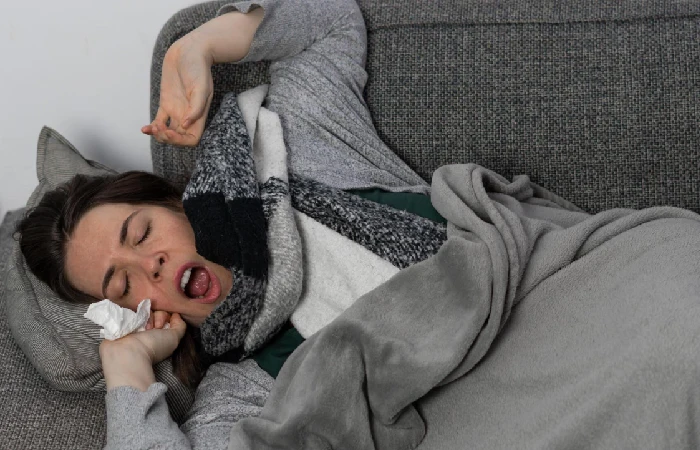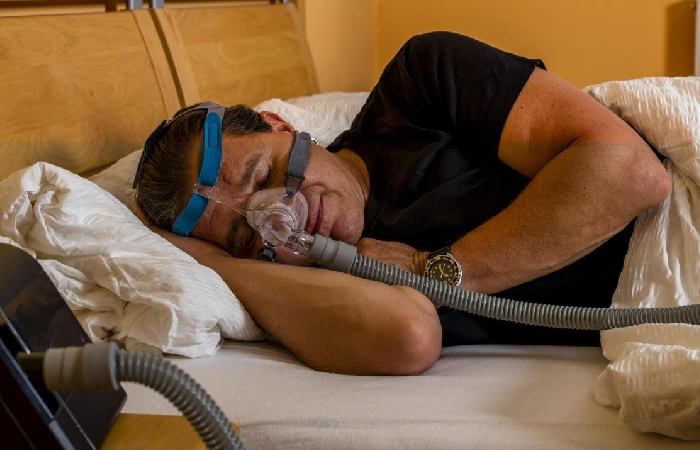Allergies Contribute to Snoring: Regarding sleep disruptions, snoring takes center stage, interfering with the partner’s and the snorer’s sleep. While there are numerous established causes of snoring, including obesity, alcohol use, and structural problems, allergies are one less well-known culprit. The intricate relationship between snoring and allergies can significantly negatively affect a person’s quality of life. This article examines the mechanics underlying this connection and discusses how consulting sinus and snoring specialists, especially in Houston, Texas, might provide practical answers.
Table of Contents
Allergies and Snoring
Knowing the fundamentals of these phenomena is crucial to understanding how allergens contribute to snoring. Allergies arise from the immune system’s hyperreaction to chemicals called allergens, which sets off a series of inflammatory responses. Pollen, dust mites, pet dander, and mold spores are common allergies. The body releases histamines and other substances in response to these allergens, causing symptoms including sneezing, itching, and congestion in the nose.

Conversely, snoring results from airflow obstruction during sleep, which causes vibrations of the soft tissues of the nose and throat. As occasional snoring is common, persistent snoring may indicate more severe conditions, such as obstructive sleep apnea (OSA), characterized by frequent breathing pauses as you sleep.
The Link Between Allergies and Snoring
The cause of the connection between snoring and allergies is the inflammation and congestion that allergies generate. When inhaled, Allergens can induce edema and congestion in the sinuses and nasal passages. Airflow obstruction from this congestion may cause snoring. Allergies can also worsen pre-existing nasal disorders, including nasal polyps or a deviated septum, worsening airflow blockage and snoring.
Moreover, allergies can cause symptoms like sneezing and itching of the nose, which can interfere with sleep and make snoring worse. Untreated allergies can cause people to snore more loudly at night, have poorer quality sleep, and have worsening allergy symptoms—a vicious cycle that is detrimental to their general health.
Impact of Allergies on Snoring Severity
Studies have demonstrated a direct relationship between allergens and snoring intensity. A study published in the American Journal of Respiratory and Critical Care Medicine found that individuals with allergic rhinitis (hay fever) were likelier to snore and experience sleep-disordered breathing than those without allergies. This emphasizes how crucial it is to treat allergies to minimize snoring and breathing difficulties associated with sleep deprivation.
Allergies can also worsen underlying medical disorders like nasal congestion, which can further aggravate the symptoms of snoring. Allergies produce nasal congestion, which narrows the airway and increases the chance of it collapsing while you’re sleeping and snoring. Allergy-induced inflammation can also impact the throat’s soft tissues’ tone and functionality, exacerbating snoring.
Seeking Help from Sinus and Snoring Specialists

Getting assistance from experts who understand the relationship between the two can be crucial for those suffering from allergies and snoring. Renowned specialists of sinus surgery in Houston, Texas, provide thorough assessments and individualized treatment regimens to meet each patient’s specific requirements.
Sinus specialists are qualified to identify and manage disorders of the sinuses and nasal passages, such as sinusitis, allergies, and nasal polyps. They use advanced diagnostic techniques like endoscopic examination and imaging tests to determine the degree of nasal obstruction and inflammation. Based on their results, they can suggest suitable interventions, such as drugs or minimally invasive procedures like sinus surgery.
Apart from sinusologists, snore experts concentrate on diagnosing and treating respiratory diseases associated with sleep, such as snoring and sleep apnea. In-depth assessments, which may consist of nocturnal sleep tests, are conducted to identify the underlying cause of snoring and its possible effects on general health. To create personalized treatment plans, snoring specialists collaborate extensively with patients. These plans may involve oral appliances, lifestyle changes, or continuous positive airway pressure (CPAP) therapy for more severe cases.
Combining Allergy Management with Snoring Treatment
Treating allergy triggers to lessen nasal channel irritation and congestion is crucial to controlling allergies and snoring. Comprehensive allergy testing is available at Houston allergy clinics to determine which allergens cause a person’s symptoms. Specialists can suggest methods to reduce exposure when allergens have been identified, such as environmental controls and allergen immunotherapy (allergy shots).
Additionally, there may be synergistic benefits to treating snoring in conjunction with allergy therapy since lowering nasal congestion and inflammation can enhance airflow during sleep and reduce snoring. If a person has underlying structural problems—such as a deviated septum or nasal polyps—that are causing allergies and snoring, sinus surgery may be advised. Houston’s otolaryngologists, or specialists in the ears, nose, and throat, conduct sinus surgery employing cutting-edge techniques to maximize results.
Conclusion
Ultimately, allergies can cause inflammation and congestion in the upper airway, further exacerbating snoring. Along with services offered by Houston allergy clinics, professionals in sinus and snoring give comprehensive solutions catered to individual needs. Treating allergies can significantly reduce snoring symptoms and enhance the quality of your sleep, whether through allergy management techniques or sinus surgery in Houston, Texas. People can breathe easier and sleep more peacefully by being proactive and getting professional care to stop snoring.
